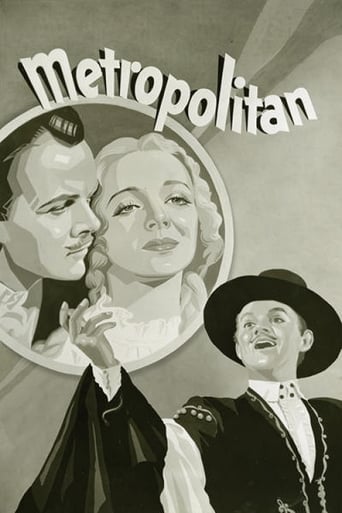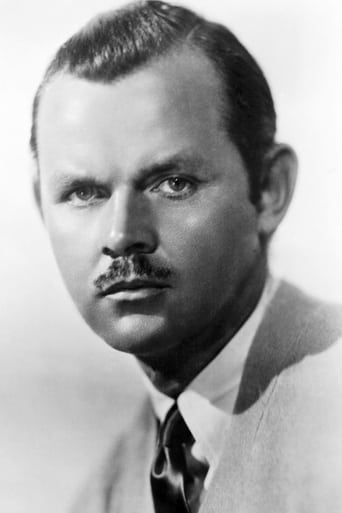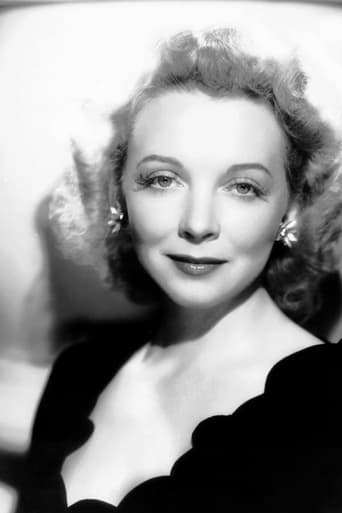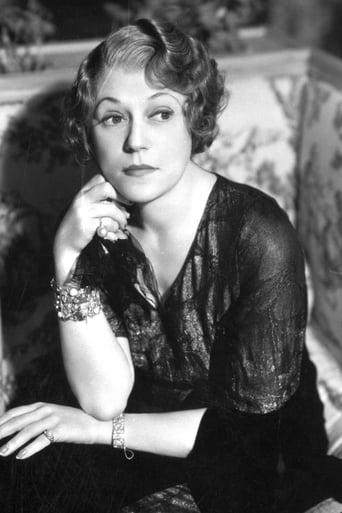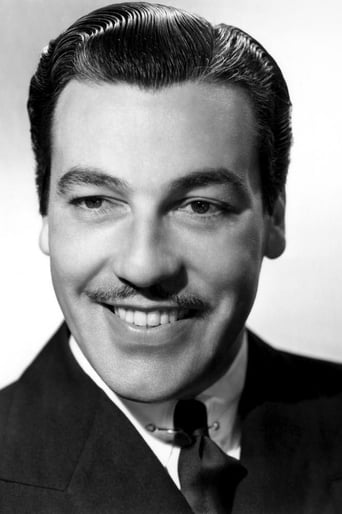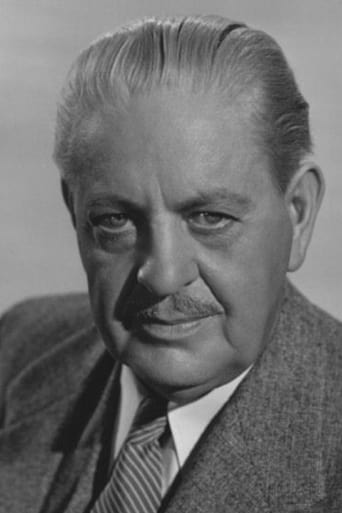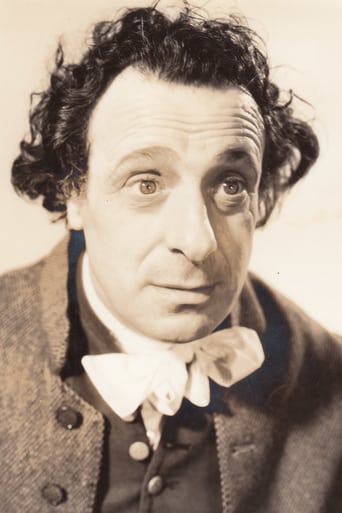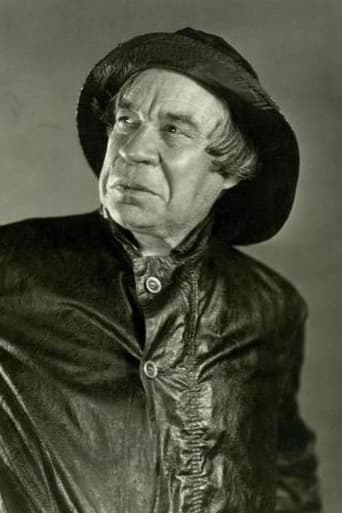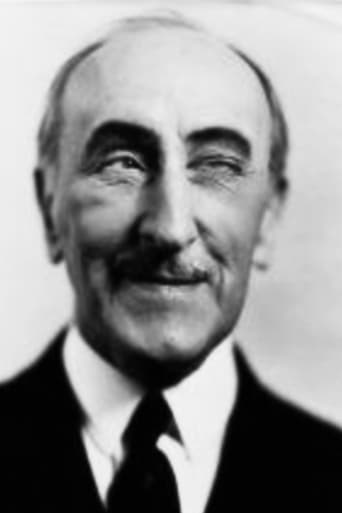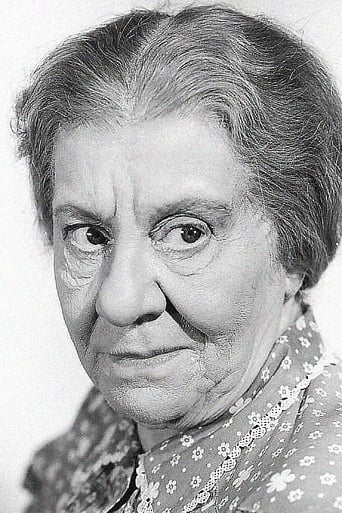Opera prima donna leaves the Metropolitan to form her own company with Tibbett as leading man. She leaves this company too which means Tibbett and company must carry on without her.


Reviews
The script for this movie is really bad, a collection of tired clichés. And that's a shame, because there is enough talent here to have made a good movie.Lawrence Tibbett was unquestionably one of the great singers of the first part of the twentieth century, and definitely one of the first American stars of opera, along with Rosa Ponselle and Grace Moore. He was a handsome guy who could act, and he had real stage presence, which you can see in this movie.And that is what saves this movie from being a total loss. Several of Tibbett's signature roles - Tonio in Pagliacci, Escamillo in Carmen, Figaro in the Barber of Seville - get captured here, so that we can see why he delighted opera audiences for two decades at the Met. The opera excerpts are never presented or explained, however; they just get performed, leaving most of the audience to appreciate the music, if they can, without any idea what Tibbett is singing so well. That was expecting too much, I suspect, and it's a shame, because the three excerpts are good performances that could have been integrated into the script a lot better.We also get to see Tibbett sing two popular numbers, and they are perhaps the most striking in the movie: a setting of Kipling's "On the road to Mandalay" and the spiritual "De glory road," with both of which Tibbett does a great job. Again, however, there is no effort to integrate them into the plot. At one moment, Tibbett sings them as examples of "beauty" to other musicians. Then they're over. There isn't much else to notice in this movie. If that is Virginia Bruce doing Micaela's aria from Carmen, she does a good job of it.The rest is all clichés. Why, you might wonder, does the movie start with Tibbett's character leaving Bruce's character stranded in the countryside with a broken down car? That should have aggravated her to no end. Instead, she falls in love with his voice.It never gets any better.This marked the end of Tibbett's movie career, and you can see why. But in this case the fault was not Tibbett's. The script was the villain!
The passage of time could not be emphasized more emphatically than with the recent reissue by TCM of the 1935 rarity, "Metropolitan". The passing of the beloved American 'hometown' coloratura Beverly Sills may have prompted TCM to resurrect the more noted of the two movies made by the American 'hometown' baritone, Lawrence Tibbett. (The other movie was "Under Your Spell".) He was a product of Bakersfield, California.It is unfortunate that the name has been so easily overlooked by many who may have been born ten years too late to enjoy his voice. It is incomprehensible today why such a magnificent voice coupled with a winning personality could not have resulted in a longer illustrious career for Mr. Tibbett, especially in the burgeoning Hollywood industry. It would certainly have helped to maintain a treasure trove of history for music lovers. Suffice it to say that this film does its best to rectify this oversight.Mr. Tibbett provides us with a clear illustration of the power of his vocal abilities and also of his masterful interpretation of any piece be it operatic aria, Negro spiritual, or drawing room favorite.In this 1935 movie he presents 'Largo al Factotum' from "The Barber of Seville"; 'The Toreador Song' from "Carmen" and the prologue from "I Pagliacci", 'Si Puo'. The second of a trilogy of spirituals by the noted composer, Jacques Wolfe, 'De Glory Road' is interpreted beautifully by Mr. Tibbett. And to accommodate the hoi polloi, the wonderful soliloquy of a British veteran of old Burma as imagined in a familiar poem by Rudyard Kipling and set to music by Oley Speaks, ' On the Road to Mandalay' is given its definitive interpretation by the greatest American baritone. (Paul Robeson is not considered here only because he was deemed to be a bass-baritone and did not have the opportunity to sing at the Met)Both Virginia Bruce and even Alice Brady had creditable voices in their brief stints but were no match for Mr. Tibbett. MGM gave Miss Bruce the opportunity to display her musical ability further in the 1936 Eleanor Powell movie, "Born To Dance". She is the one who had the honor of introducing the Cole Porter classic 'I've Got You Under My Skin'. Also, as a nod to her pulchritude, she was the crowning model in the extravagant 'A Pretty Girl is Like a Melody' production number with the spiraling staircase in the 1936 "The Great Ziegfeld". Yes, she was the one at the top.Alice Brady found that comedy was more rewarding for her in Hollywood than was music and enjoyed a long and illustrious career accordinglyThose of you who may have difficulty recalling the American baritones of yesteryear will be instantly and pleasurably reminded if you are fortunate enough to catch a viewing of "Metropolitan" on TCM.
No one should expect a well-wrought, intricately developed plot from a film that was designed as a showpiece for the American baritone Laurence Tibbett,any more than one would expect it from a Warner's backstage musicals from the 1930s. Tibbett was one of the few stellar performers of the Metropolitan Opera who was equally at home and successful in popular music. (I believe at one time, toward the end of his opera career, he was featured on "Your Hit Parade", singing what were supposedly the five or six most popular songs of the week, judged by record sales.) At the Metropolitan Opera he played the lead in the premieres of American operas such as Merry Mount, Emperor Jones and The King's Henchmen. I believe that he made the first commercial recordings from Porgy and Bess as Porgy, using the same dialect as in this film when he sings the Negro spiritual "Glory Road" in a perhaps over-dramatic rendition. The role of Bess is sung by another Caucasian opera star. Helen Jepson,who made one more Hollywood appearance in the pathetic Goldwyn Follies.The supporting cast of experience character actors,as often happens, manages to give the claptrap plot a measure of credibility. Virginia Bruce, the leading lady, was an actress/singer who never broke through to stardom, despite a lengthy filmography. She had a beautiful soprano voice and a lovely appearance, but did not project much warmth as in the manner of top stars, even in her one solo from Carmen, as the timid and loving Micaela. Her voice belonged in operetta, not in either opera or show business tunes. Jeanette MacDonald has the former cornered, and there were many with more sensuous voices who succeeded with the latter. But she did look terrific at the top of the "wedding cake" number in The Great Ziegfeld, the most prominent role of her career.
Alice Brady is ideally cast as a temperamental diva. She is believable and hilarious. The voice with which she sings seems to be her own.Virginia Bruce, a charming performer, is OK but no more as an ingénue.The movie is Lawrence Tibbett's. He sings arias from several composers, as well as singing some appealing songs. (Was it common in those times for Caucasian opera singers to perform spirituals? Regardless: He sings one.) The plum is a long section of "Pagliaci," in which he is, of course, superb.This is the only commercial movie in which I've seen Tibbett. He appears a bit stodgy and is certainly not conventionally handsome. But his singing is glorious; and singing is what this movie is about.about.
